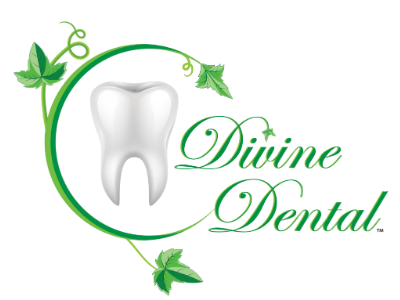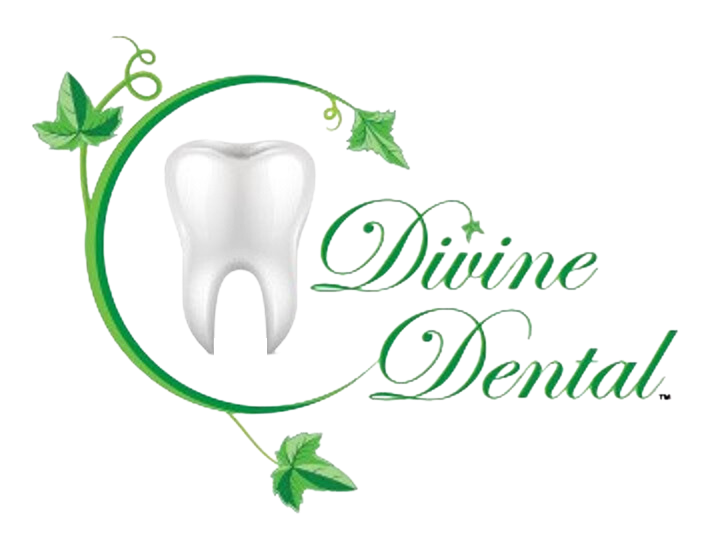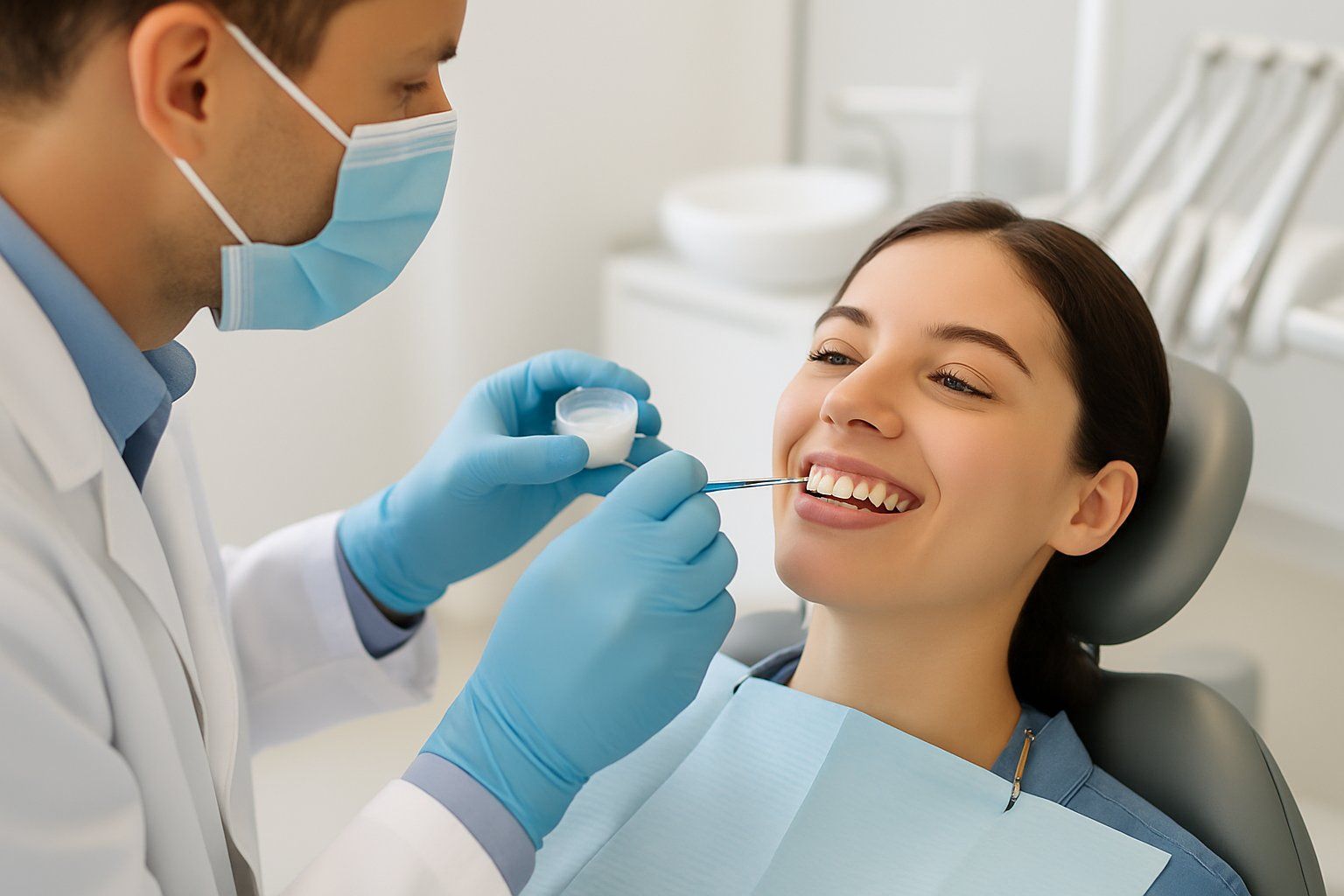Recovering from Tooth Extraction: Tips For A Smooth Healing Process
Tooth extraction is a common dental procedure performed to remove a tooth from its socket in the jawbone. It is often necessary due to tooth decay, crowded teeth, or as part of orthodontic treatment. The purpose of tooth extraction is to eliminate pain and prevent further damage to surrounding teeth and oral health. After undergoing this procedure, proper post-surgery care is crucial for a smooth healing process.
Taking care of the extraction site, managing pain and inflammation, following a soft food diet, and avoiding strenuous activities are essential aspects of recovery. By adhering to these guidelines, patients can experience a faster recovery time, minimize the risk of complications such as dry socket, and promote oral health.
What Is Tooth Extraction?
Tooth extraction is a dental procedure that involves the removal of a tooth from its socket in the jawbone. It is typically recommended when a tooth is severely damaged, decayed, infected, or causing crowding in the mouth. While tooth extraction may sound daunting, it is a common and routine dental procedure that can help improve oral health and prevent further complications.
The process is usually performed by an oral surgeon or a dentist with advanced training in oral surgery. Following tooth extraction, it is important to take certain precautions and follow a few tips to ensure a smooth healing process. In this article, we will discuss some helpful tips for recovering from a tooth extraction and promoting oral health during this period.
What Are the Benefits of Tooth Extractions?
Tooth extractions offer numerous benefits for overall oral health. One of the primary advantages is the prevention of tooth decay and gum disease. Removing severely decayed or infected teeth prevents the spread of bacteria and potential complications. Additionally, tooth extractions can alleviate crowding and misalignment issues. This can create more space in the mouth for the remaining teeth to align properly, reducing the risk of future oral health problems.
Another benefit of tooth extractions is the elimination of infection and pain. Extraction is often recommended to remove teeth that are causing discomfort or have severe infections that cannot be treated with other methods. By removing the source of the pain and infection, patients can find relief and improve their quality of life.
Furthermore, tooth extractions contribute to the improvement of overall oral health. By addressing problematic teeth, the extraction helps maintain the health and integrity of the surrounding teeth and gums. This can help prevent future complications and maintain a healthy smile.
In addition, tooth extractions can enhance the appearance of the smile. Removing damaged or decayed teeth can improve the overall aesthetic by eliminating gaps, misalignment, or discolored teeth.
Overall, tooth extractions have several benefits, including the prevention of tooth decay and gum disease, alleviation of crowding and misalignment, elimination of infection and pain, improvement of oral health, and enhancement of the appearance of the smile. Seeking professional guidance from an oral surgeon or dentist is essential to determine if tooth extractions are necessary.
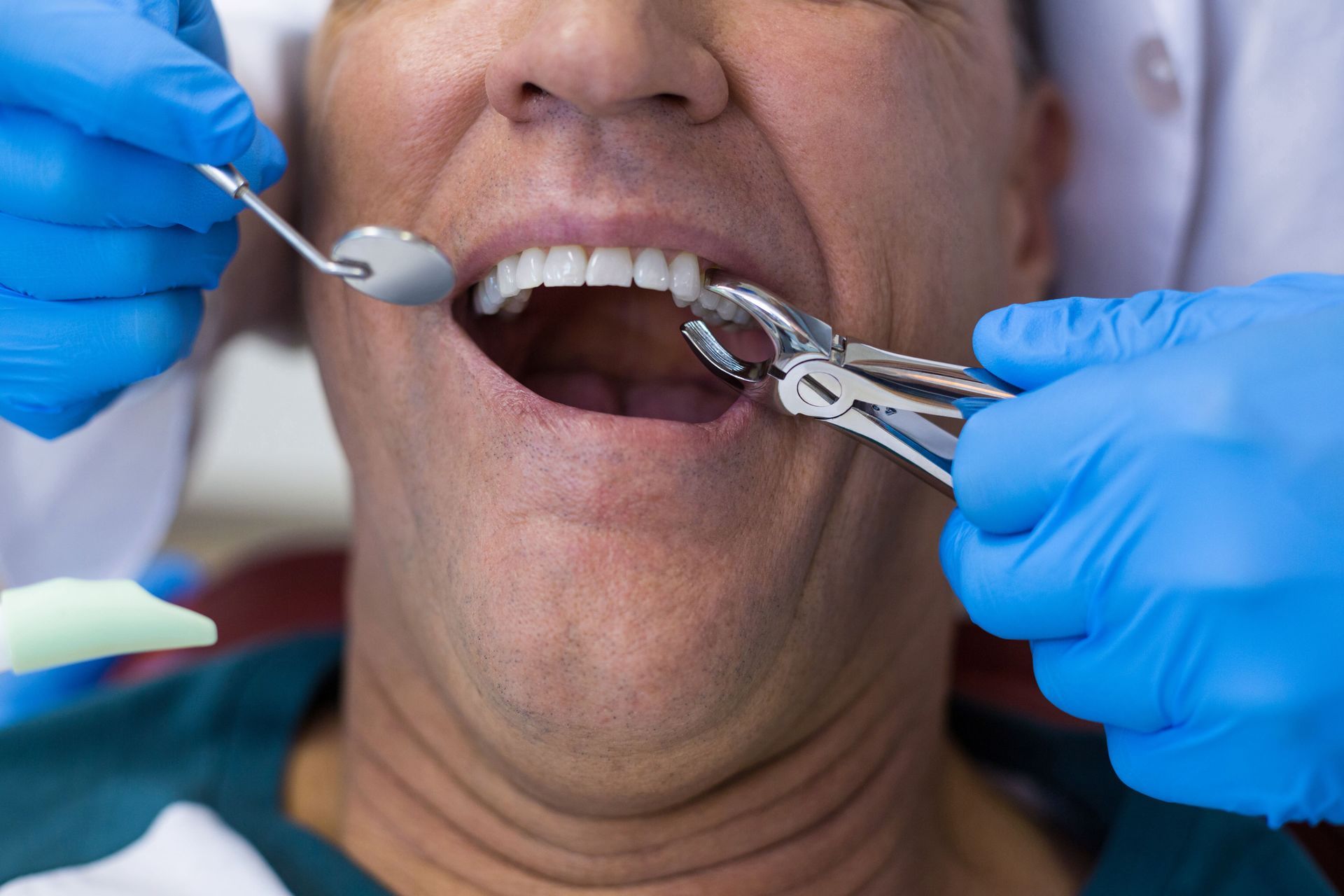
Post-Surgery Care: Tips For A Smooth Healing Process
Recovering from a tooth extraction can be a challenging process, but with the right post-surgery care, you can ensure a smooth healing process. Whether you've had a simple extraction or wisdom tooth surgery, it's important to take proper care of your mouth to avoid complications and promote faster recovery.
Taking Pain Medication and Anti-inflammatory Drugs
Taking pain medication and anti-inflammatory drugs after tooth extraction surgery is crucial for a smooth healing process. These medications help alleviate pain, reduce inflammation, and promote faster recovery.
Commonly prescribed pain medications include over-the-counter options such as acetaminophen (Tylenol) and ibuprofen (Advil, Motrin). These should be taken as directed on the packaging or as advised by your dentist or oral surgeon. It is important to follow the recommended dosage and frequency to manage discomfort effectively.
Anti-inflammatory drugs, like ibuprofen, also help reduce swelling and inflammation around the extraction site. They can be taken alongside pain medications to provide additional relief.
While pain medication and anti-inflammatory drugs can greatly improve your comfort during recovery, it is essential to be aware of potential side effects. These may include stomach upset, drowsiness, or allergic reactions. It is always advisable to consult with your healthcare professional before taking any medication and to carefully follow the instructions provided.
Remember, pain medication and anti-inflammatory drugs are just one aspect of recovery. It's equally important to practice good oral hygiene, avoid strenuous activities, and follow any other post-operative instructions provided by your oral surgeon. By taking these medications as prescribed and following a comprehensive care plan, you can ensure a smoother healing process and a faster recovery.
Eating Soft Foods, Ice Cream, and Avoiding Crunchy or Spicy Foods
After a tooth extraction, it is crucial to follow a soft food diet to promote a smooth healing process. Soft foods are gentle on the surgical site and reduce the risk of irritation or dislodging of blood clots. Here are some excellent options for soft foods to enjoy during your recovery:
- Mashed potatoes: Creamy and easy to eat, mashed potatoes are a great source of nutrients.
- Scrambled eggs: Soft and protein-packed, scrambled eggs are gentle on the mouth.
- Yogurt: Packed with probiotics, yogurt is not only easy on the surgical site but also promotes good oral health.
- Soup: Choose broth-based soups with soft vegetables or pureed soups for a nourishing and comforting meal.
- Smoothies: Blend fruits, yogurt, and protein powder for a nutritious and easy-to-consume meal replacement.
- Applesauce: This smooth and natural option offers fiber and vitamins without irritating the surgical site.
While following a soft food diet, it is essential to avoid crunchy or spicy foods as they can cause discomfort and potentially dislodge the blood clots needed for proper healing. Instead, consider enjoying a soothing treat like ice cream. The coolness of the ice cream can help numb the area and provide temporary relief.
Remember, recovery from a tooth extraction is an important process, and giving your body the time to heal is crucial. By sticking to a soft food diet and avoiding crunchy or spicy foods, you can help ensure a faster and smoother recovery.
Rinsing With Warm Salt Water Every Few Hours
Rinsing with warm salt water every few hours after tooth extraction is crucial for promoting healing and preventing infection. This simple and effective technique helps keep the extraction site clean and reduces the risk of bacteria buildup.
Preparing the warm salt water solution is a straightforward process. Start by dissolving half a teaspoon of salt in a glass of warm water. Make sure the water is not too hot to avoid burning the mouth.
To rinse with warm salt water, take a sip of the solution and swish it gently in your mouth for about 30 seconds. Be careful not to gargle or rinse too vigorously, as this can disrupt the healing process. Afterward, spit out the solution and repeat the process every few hours throughout the day.
Rinsing with warm salt water helps remove food debris and bacteria, reduces swelling, and soothes discomfort. It also promotes blood circulation to the area, aiding in the healing process. Additionally, the salt in the solution has antimicrobial properties, which can further help prevent infection.
During the recovery period after tooth extraction, it is vital to prioritize oral health and take necessary precautions. Alongside rinsing with warm salt water, maintaining good oral hygiene, taking pain medications as prescribed, and getting plenty of rest are essential aspects of the recovery process. Remember to consult your oral surgeon or dentist for personalized guidance and any concerns you may have during your healing journey.
Practicing Good Oral Hygiene With Brushing and Flossing
Practicing good oral hygiene is crucial for maintaining oral health after a tooth extraction. Brushing and flossing regularly not only keep your teeth and gums clean but also aid in the healing process. However, it's important to be extra cautious and gentle when brushing to avoid dislodging blood clots or causing further irritation.
After a tooth extraction, it is recommended to use a soft-bristled toothbrush to prevent any damage to the extraction site. Brushing should be done in a gentle manner, avoiding the area where the tooth was extracted. Be sure to clean the rest of your teeth and gums thoroughly to prevent any bacterial buildup that could lead to infection.
Flossing is also essential for oral hygiene, but it should be done with care to avoid disturbing the healing process. Gently glide the floss between your teeth, being cautious around the extraction site. If you experience any discomfort or bleeding, it is best to consult your dentist.
Using a non-alcoholic mouthwash is another effective way to maintain oral hygiene after a tooth extraction. It helps to rinse away any remaining bacteria or debris, promoting cleanliness and preventing infection.
By practicing good oral hygiene, including gentle brushing and flossing techniques, you can ensure a smooth healing process after a tooth extraction. Make it a priority to take care of your oral health to prevent any complications and promote faster recovery.
Avoiding Alcohol
Avoiding alcohol after a tooth extraction is crucial for promoting a smooth healing process. Alcohol can interfere with the blood clotting process, which is essential for proper healing. When a tooth is extracted, a blood clot forms in the extraction site to protect the underlying bone and promote tissue regeneration. However, consuming alcohol can disrupt this important clotting process, leading to complications and increasing the risk of infection.
To ensure a successful recovery, it is recommended to abstain from alcoholic beverages such as beer, wine, and spirits for a certain period of time after the surgery. This period may vary depending on the complexity of the extraction and your dentist's instructions, but it is generally advised to avoid alcohol for at least 24-48 hours.
During this time, it is important to consume plenty of non-alcoholic fluids to stay hydrated and support the healing process. Opt for water, herbal teas, and non-citrus juices instead. These fluids will not only keep you hydrated but also help flush out any remaining debris and promote oral health.
By avoiding alcohol after a tooth extraction, you can ensure proper blood clot formation, reduce the risk of infection, and support a faster and smoother healing process. Remember to always follow your dentist's instructions and consult them if you have any concerns or questions.
Applying Cold Compresses To Reduce Swelling
After a tooth extraction, it is common to experience swelling in the area where the tooth was removed. To help reduce this swelling and promote a smooth healing process, applying cold compresses can be very helpful.
To start, you will need a clean cloth or washcloth. Place this cloth in a plastic bag and put it in the freezer for about 10-15 minutes. It is important to ensure that the cloth is clean to avoid any risk of infection.
Once the cloth is adequately chilled, remove it from the freezer and gently apply it to the affected area. It is recommended to keep the compress on for about 10-15 minutes at a time. You can repeat this process several times a day, as needed.
The cold temperature of the compress helps to constrict blood vessels, reducing blood flow to the area and therefore reducing swelling. This simple and inexpensive method can provide relief and promote faster healing.
However, it is important to note that the cold compress should never be applied directly to the skin, as it can cause ice burns. Always wrap it in a thin cloth or towel before applying it to the affected area.
In addition to applying cold compresses, it is crucial to follow all post-operative instructions provided by your oral surgeon or dentist. This may include other measures such as taking prescribed pain medications, avoiding strenuous activities, and maintaining good oral hygiene.
By consistently applying cold compresses and following the recommended guidelines, you can help reduce swelling and ensure a smoother and more comfortable recovery from your tooth extraction.
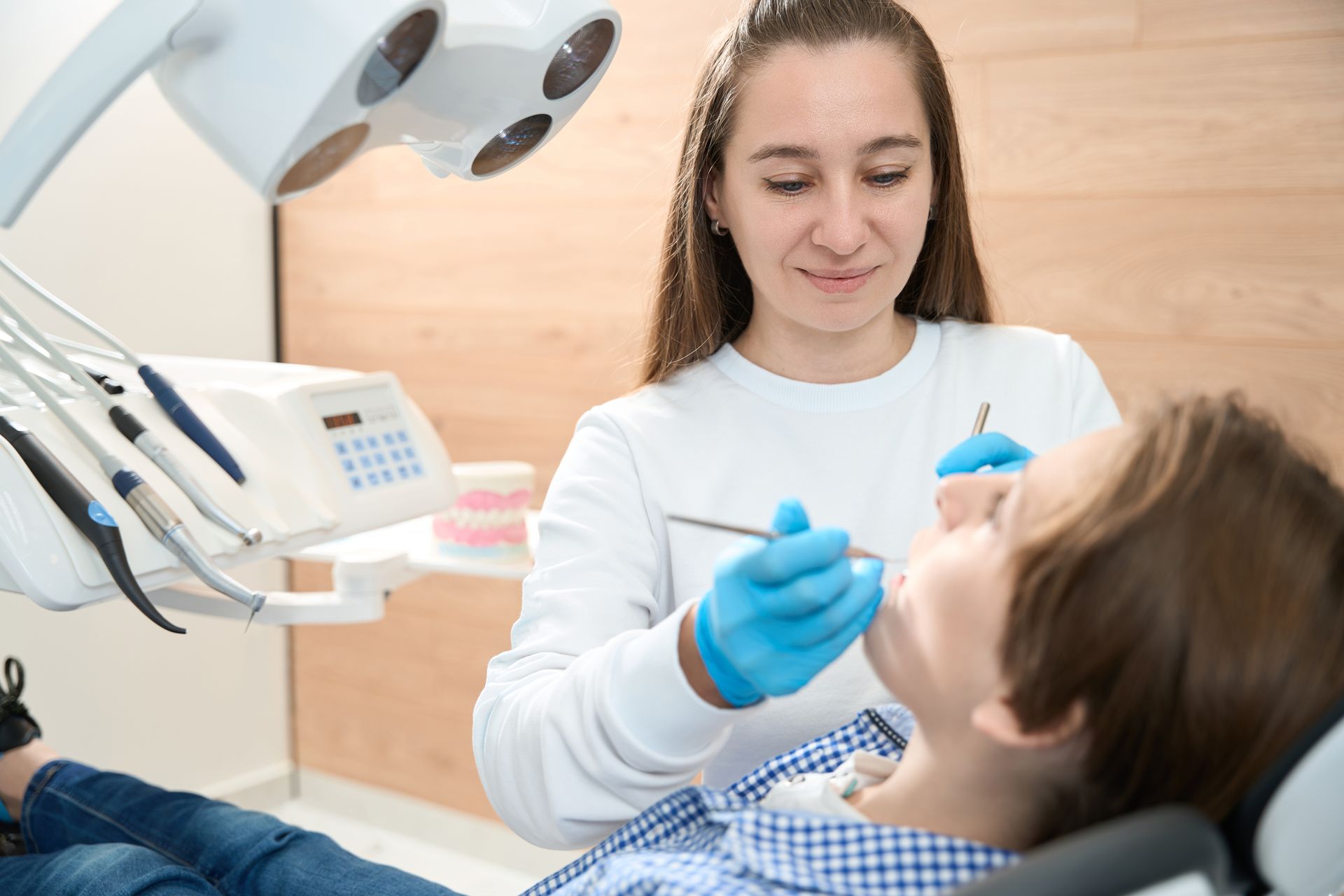
When to Contact Your Dentist
After a tooth extraction, it is normal to experience some degree of pain, swelling, and mild bleeding. However, there are certain signs and symptoms that may indicate a complication or infection, requiring immediate attention from your dentist. If you experience any of the following, it is important to contact your dentist:
- Persistent and severe pain: While some discomfort is expected after a tooth extraction, persistent and severe pain that does not improve with prescribed pain medications should be reported to your dentist.
- Heavy bleeding: It is common to have some bleeding in the first 24 hours after the extraction. However, if the bleeding is excessive or does not stop even after applying pressure for 30 minutes, it is necessary to seek dental care.
- Presence of pus or discharge: The formation of pus or any type of discharge around the extraction site may indicate an infection. It is crucial to contact your dentist if you notice such symptoms.
- Fever: A persistent high fever after a tooth extraction may be a sign of infection spreading. It is important to notify your dentist promptly.
Difficulty swallowing or breathing: If you experience difficulty swallowing or breathing, it could indicate a more serious complication such as swelling or an airway obstruction. Seek immediate dental care like in The Scottsdale Dentist if you encounter these symptoms.

Conclusion
In conclusion, recovering from a tooth extraction can be a daunting process, but with the right care and information you can make it much smoother. Be sure to follow your dentist’s instructions for aftercare, take any medications prescribed for pain or swelling, eat soft foods, avoid straws and smoking, keep your mouth clean, and practice good oral hygiene habits. While recovery times vary by person, following these tips can help to ensure a safe and quick healing process.
